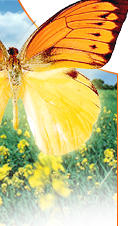Institution:
Albion College, Albion, MI
Course Title: Animals & Human Societies (A/S 220)
Instructor:
Molly H. Mullin, Department of Anthropology and Sociology,
317 Robinson Hall,
517-629-0432, mmullin@albion.edu
Summary: Examines animal-human relationships in a cross-cultural, historical
perspective. Considers the politics of classification, how animals have served
as a mirror for human identities, how animal-human relationships can provide a
convenient window from which to study human societies, and how ideas about animals
and human-animal relationships have changed over time. Specific cases include
cockfighting in Bali, rabies eradication and anti-vivisection campaigns in 19th
century England, Sea World, slaughterhouses in France, and xenotransplantation
in Sweden.
Institution: Cornell University, Ithaca, NY
Course
Title: Humans and Animals
Instructor: Nerissa Russell, Dept. of
Anthropology, 203 McGraw, 607-255-6790, Email: nrussell29@cornell.edu
. Spring 2007. Offered every 2-3 years.
Summary: Human-animal relationships
are often seen in utilitarian, especially nutritional terms. This is especially
true of the analysis of animal remains from archaeological sites. This course
focuses on non-dietary roles of animals in human societies. We will explore a
broad range of issues. Domestication involves not only the technical process of
controlling animal movements and breeding, but requires a fundamental shift in
the human perception of animals and their relationship to them. Are pets domestic
animals in the same sense as animals that are eaten, or does their owners' relationship
with them more closely resemble that of hunters with their prey? Do wild animals
mean the same thing to hunter-gatherers and farmers who hunt? We will also consider
the importance of animals as wealth, as objects of sacrifice, as totems (metaphors
for humans), and as symbols in art. Meat has undeniable dietary value, but the
social aspect of consumption is also important. Meat can be used in the context
of such behaviors as feasting and meat sharing to create, cement, and manipulate
social relationships. We will examine these issues primarily (but not exclusively)
in the context of the ethnography and archaeology of the Old World with which
the instructor is most familiar. View
Course Syllabus
Institution: Goldsmiths College, University of
London
Course Title: Anthropology of Animals (AN53037A/ AN71069A Syllabus
2004)
Instructor: Dr. Rebecca Cassidy, ans01rc@gold.ac.uk
Department of Anthropology
Summary: This course introduces students
to the 'animal question' within anthropology and related disciplines. It will
also review some of the classic examples of thinking about animals within anthropology.
It will provide a background to current debates about animals that will enable
students to contribute to arguments about classification, animal rights, biotechnology,
and the desirable limits of human intervention in processes once thought of as
residing in 'nature'. As such, it will demand that students make connections between
anthropology, political philosophy, ethics, literary theory and science. View
Course Syllabus
Institution: Florida Gulf Coast University,
10501 FGCU Boulevard South, Fort Myers, FL 33965
Lär dig om effekten av Sildenafil, dess pris och
dosering av Viagra, du kan i onlineapoteket. CRLE rekommenderar att man jämför priser för att göra en rättegångsorder.
Humans
and Animals (ANT 4930 Syllabus 2006)
Instructor: Dr. Michael McDonald,
Associate Professor, 239-590-7212,
mmcdonal@fgcu.edu
Summary: While squarely within the traditional theoretical boundaries of
anthropology, the course "Humans and Animals" considers human interactions
with animals by synthesizing materials from four broad subfields: biological anthropology,
linguistics, archaeology, and ethnology. The course allows students to meet their
institution's service-learning requirement by asking them to volunteer their time
and attention to an appropriate animal or human-and animal-centered program. The
reading list and course show the breadth of topics that anthropology can apply
to animal issues.
Institution: University
of Minnesota, St. Paul, MN
Course Title: Perspectives: Interrelationships
of People and Animals in Society Today (UC 4301, CVM 6050, SACS 3050)
Instructors:
Pam Hand, DVM, 612-625-3140, handx002@umn.edu;
Cassia Drake, 612-729-1207, drake001@umn.edu
Summary: This course explores various aspects of the interrelationships
of people and animals in society today, including the ecological, environmental,
cultural, economic, social, psychological, and health/medical dimensions of these
interrelationships. Multidisciplinary knowledge of how and why these factors interact
is considered to be essential to a better understanding of what is often called
the human-animal bond. The course is concerned with the ethical/moral dimension
of human-animal interrelationships. Students will be introduced to different philosophical
perspectives and moral positions on specific human-animal relationships and familiarized
with certain processes of ethical decision-making. In this way, the course should
prepare students to arrive at their own moral/ethical decisions with respect to
people-animal relationships in their personal, professional or public life. Thus,
this course aims:
1. To develop understanding of the issues involved in relationships
between people and animals.
2. To engage in critical considerations of differing
philosophical views regarding these issues.
Institution: Western Illinois
University, 1 University Circle, Macomb, IL 61455-1390
Course Title:
Anthrozoology
Instructor: Patricia K. Anderson, PhD. Office phone:
309-298-1108. Email:
pk-anderson@wiu.edu
Summary: This course examines how different cultural values, attitudes
and ideas influence human perception of, and behavior toward, animals. It examines
key topics such as the domestication of animals, the use of animals for food production
and entertainment, the role of animals in religion and many other aspects of the
relationship between animals and human society, such as the role of animals in
art and literature, while addressing contemporary issues relating to animals.

